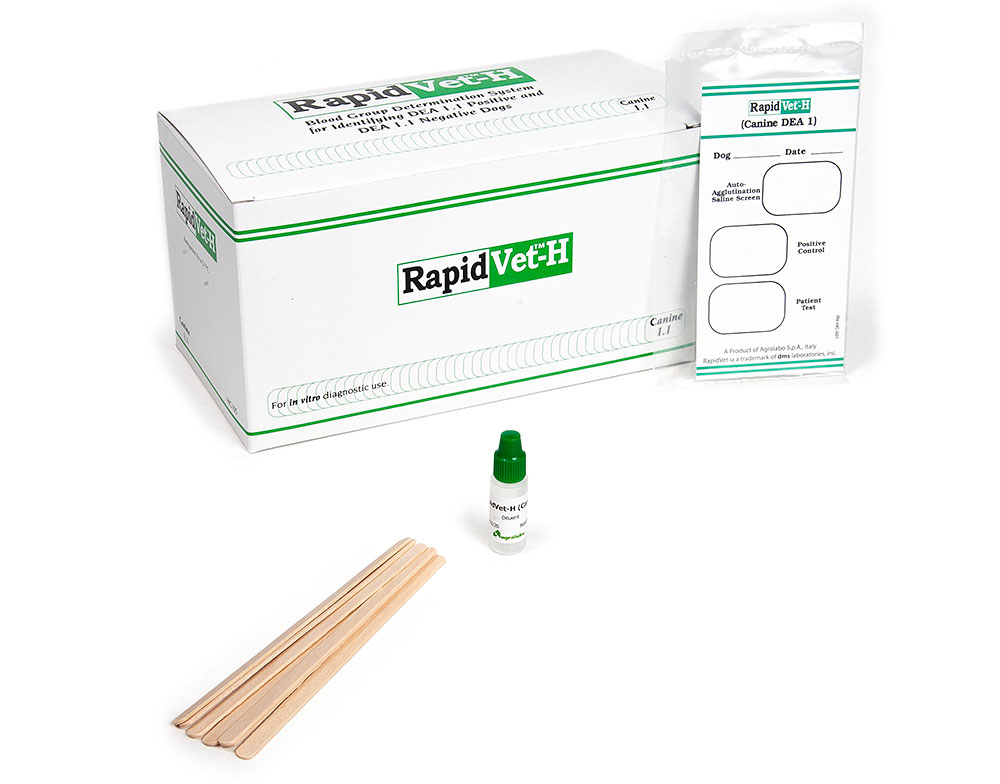RapidVet-H Canine
Agglutination test for the detection of blood group DEA1 with monoclonal antibodies IgM.
RapidVet-H Canine DEA1 is an agglutination test to detect if the dog is DEA 1 positive or negative with monoclonal antibodies IgM.
10 TEST/20 TEST
The practice of veterinary transfusion medicine has grown considerably in recent years and as a result the understanding of the importance of identifying blood types. The internationally accepted dog blood group, the DEA (Dog Erythrocyte Antigen), is based on specific antigens that have been identified on the surface of the canine erythrocytes. Eight specific antigens have been identified on the surface of the canine erythrocytes. DEA 1.1 and 1.2 are the most significant blood factors in the dog and are considered as a part of DEA 1 subgroup.
Recent scientific studies (based on immunochromatography and flow cytometry) have shown that all the components of the subgroup DEA 1 (DEA 1.1, DEA 1.2 and probably also DEA 1.3) are not different blood groups, but different expressions of the same antigen present on the surface of the red blood cells. Dogs do not have iso-antibodies to the different incompatible blood groups, therefore an initial incompatible transfusion is generally well tolerated, but it stimulates the production of antibodies. A second incompatible transfusion can lead to a lethal reaction.
Before mating it is necessary to evaluate the blood group of the male and the female, since the antibodies present in the maternal colostrum could determine the onset of the neonatal haemolytic disease in incompatible puppies.
If a dog is DEA 1 positive can receive blood of both types: DEA 1 positive and DEA 1 negative. If a dog is DEA 1 negative can only receive DEA 1 negative blood. Using the Canine Rapid-Vet-H Kit DEA 1 it is possible to determine the blood type of the dog and classify the animals as belonging to the group DEA 1 positive or negative.
